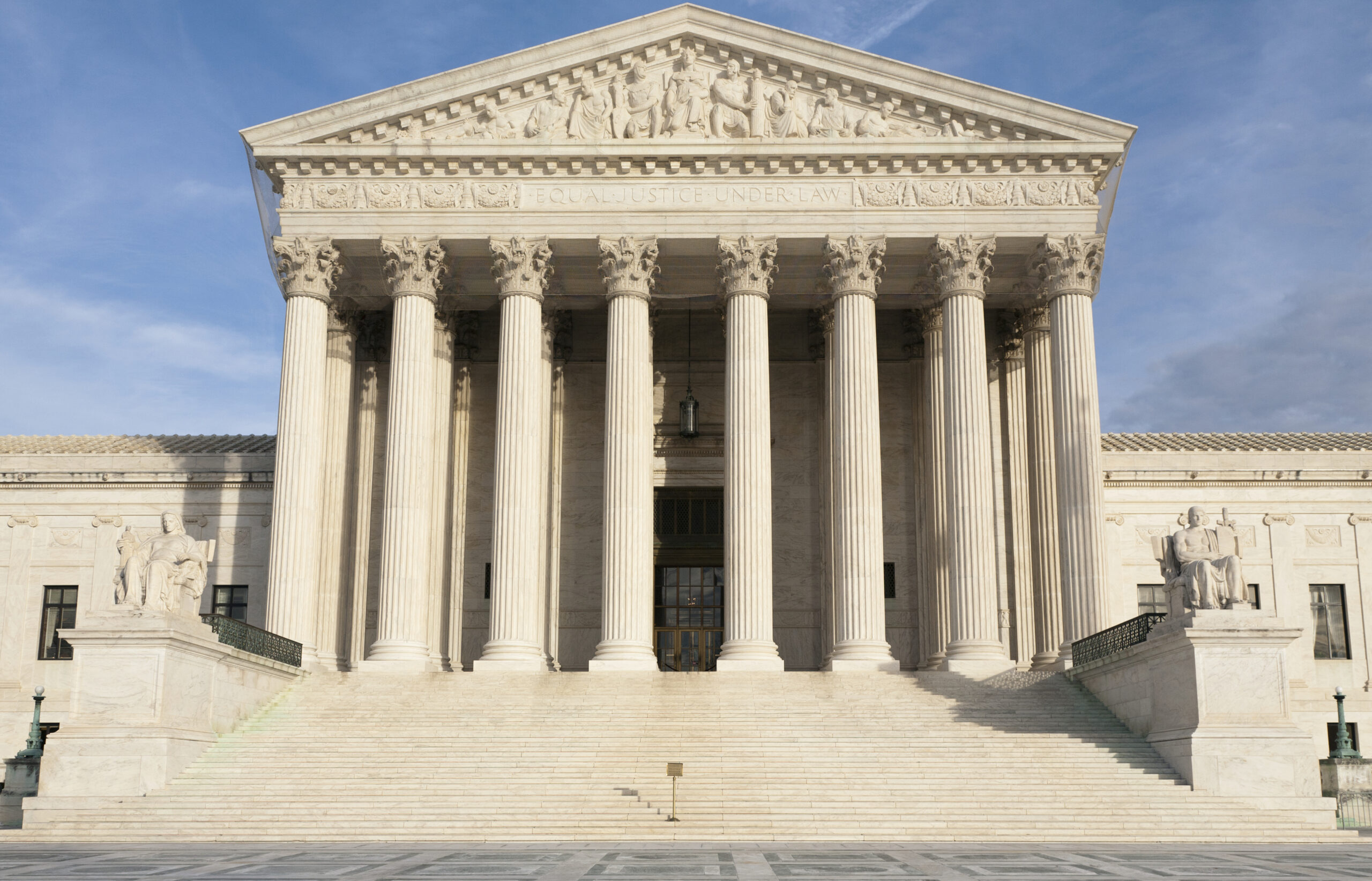
Case
Equal Protection Project v. University of Alabama
Case Particulars
Tribunal
Department of Education, Office for Civil Rights
Date Filed
April 25, 2025
Docket No.
OCR Case Number 04-25-2372
Case Status
OCR Complaint Filed
Case Overview
On April 25, 2025, the Equal Protection Project (EPP) filed a Civil Rights Complaint against the University of Alabama (UA) with the U.S. Department of Education’s Office for Civil Rights (OCR) “for offering, administering, and promoting a scholarship that discriminates based on race, color, and/or national origin.”
The Complaint explains that the specific scholarship at issue is the “Norton-Textra Endowed Scholarship for Minority Students in English,” which requires that applicants be “full-time African-American students pursuing degrees in English in the College of Arts and Sciences.”
The Complaint then explains why this scholarship violates federal civil rights laws and the U.S. Constitution:
The scholarship identified above violates Title VI by discriminating on the basis of race, color, and/or national origin. Furthermore, because UA is a public university, such discrimination also violates the Equal Protection Clause of the Fourteenth Amendment.
Title VI of the Civil Rights Act prohibits intentional discrimination on the basis of race, color or national origin in any “program or activity” that receives federal financial assistance. See 42 U.S.C. § 2000d. The term “program or activity” means “all of the operations … of a college, university, or other postsecondary institution, or a public system of higher education.” See 42 U.S.C. § 2000d-4a(2)(A); Rowles v. Curators of the Univ. of Mo., 983 F.3d 345, 355 (8th Cir. 2020) (“Title VI prohibits discrimination on the basis of race in federally funded programs,” and thus applies to universities receiving federal financial assistance). As UA receives federal funds, it is subject to Title VI…
Regardless of UA’s reasons for offering, promoting, and administering such a discriminatory scholarship, UA is violating Title VI by doing so. It does not matter if the recipient of federal funding discriminates in order to advance a benign “intention” or “motivation.” Bostock v. Clayton Cnty., 590 U.S. 644, 661 (2020) (“Intentionally burning down a neighbor’s house is arson, even if the perpetrator’s ultimate intention (or motivation) is only to improve the view.”); accord Automobile Workers v. Johnson Controls, Inc., 499 U.S. 187, 199 (1991) (“the absence of a malevolent motive does not convert a facially discriminatory policy into a neutral policy with a discriminatory effect” or “alter [its] intentionally discriminatory character”). “Nor does it matter if the recipient discriminates against an individual member of a protected class with the idea that doing so might favor the interests of that class as a whole or otherwise promote equality at the group level.” Students for Fair Admissions, Inc. v. President & Fellows of Harvard Coll., 600 U.S. 181, 289 (2023) (Gorsuch, J., concurring).
As UA is a public university, its offering, promoting, and administrating of this discriminatory scholarship also violates the Equal Protection Clause of the Fourteenth Amendment. In Students for Fair Admissions, the Supreme Court emphasized that “[e]liminating racial discrimination means eliminating all of it …. The guarantee of equal protection cannot mean one thing when applied to one individual and something else when applied to a person of another color. If both are not accorded the same protection, then it is not equal.” Id. at 206 (cleaned up). The Court further declared, “Distinctions between citizens solely because of their ancestry [including race] are by their very nature odious to a free people whose institutions are founded upon the doctrine of equality.” Id. at 208. Consequently, “[a]ny exception to the Constitution’s demand for equal protection must survive a daunting two-step examination known … as strict scrutiny.” Id. at 206 (internal quotation marks and citation omitted). The scholarship at issue here cannot withstand that exacting standard.
As OCR stated in its February 14, 2025, Civil Rights Guidance Letter:
Although SFFA addressed admissions decisions, the Supreme Court’s holding applies more broadly. At its core, the test is simple: If an educational institution treats a person of one race differently than it treats another person because of that person’s race, the educational institution violates the law. Federal law thus prohibits covered entities from using race in decisions pertaining to admissions, hiring, promotion, compensation, financial aid, scholarships, prizes, administrative support, discipline, housing, graduation ceremonies, and all other aspects of student, academic, and campus life. Put simply, educational institutions may neither separate or segregate students based on race, nor distribute benefits or burdens based on race.
The Complaint then summarizes and requests OCR take action:
Because UA’s racial and/or ethnicity-based requirements for this scholarship is presumptively invalid, and since there is no compelling government justification for such invidious discrimination, its use of such criteria violates state and federal civil rights statutes and constitutional equal protection guarantees…
The Office for Civil Rights has the power and obligation to investigate UA’s role in creating, funding, promoting and administering this scholarship, and to discern whether UA is engaging in such discrimination in its other activities – and to impose whatever remedial relief is necessary to hold it accountable for that unlawful conduct. This includes, if necessary, imposing fines, initiating administrative proceedings to suspend or terminate federal financial assistance and referring the case to the Department of Justice for judicial proceedings to enforce the rights of the United States under federal law.
Accordingly, we respectfully ask that the Department of Education’s Office for Civil Rights promptly open a formal investigation, impose such remedial relief as the law permits for the benefit of those who have been illegally excluded from UA’s various scholarships based on discriminatory criteria, and ensure that all ongoing and future scholarships and programming at UA comports with the Constitution and federal civil rights laws.
OCR is evaluating EPP’s Complaint for further action.
UPDATE: A May 20, 2025 review of the University of Alabama website shows that the “Norton-Textra Endowed Scholarship for Minority Students in English” appears to have been removed.
Case Documents
Media Coverage
- Dozens of civil rights complaints filed against universities since Trump took office, David Glasser, The College Fix (May 12, 2025)
- A Lawsuit Has Been Filed Against The University Of Alabama For Offering ‘Race-Based Scholarships’, Samantha Dorisca, Newsbreak (April 30, 2025)
- University of Alabama Discriminatory Scholarship Challenged by Equal Protection Project, William A. Jacobson, Legal Insurrection (April 29, 2025)
- University Of Alabama Gets Civil Complaint After Scholarship For Black Students Deemed Discriminatory, Nahlah Abdur-Rahman, Black Enterprise (April 29, 2025)
- University of Alabama Faces Lawsuit Over Allegedly Discriminatory Black-Only Scholarship, Ethan Parker, University Herald (April 29, 2025)
- University of Alabama faces a lawsuit after a scholarship for Black students is challenged as discriminatory, Ashleigh Yuhas, WDHN.com (April 28, 2025)
- University of Alabama scholarship for Black students challenged as discriminatory, Scott Turner, AL.com (April 26, 2025)
- EXCLUSIVE: Red State University Hit With Civil Rights Complaint For Race-Based Scholarship, Katelynn Richardson, Daily Caller (April 25, 2025)
- University of Alabama faces civil rights complaint for offering ‘discriminatory’ black-only scholarships — ‘UA is violating Title VI’, Craig Monger, 1819 News (April 25, 2025)


